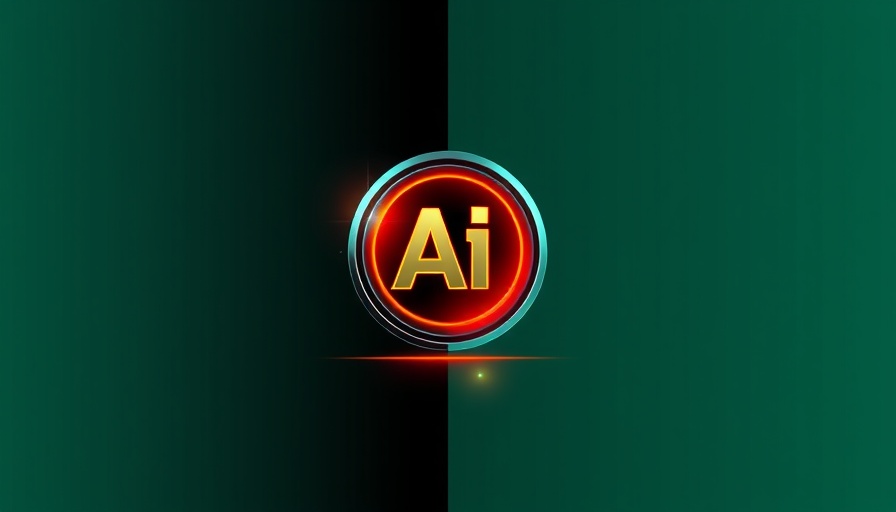
Discovering New Frontiers: Meta AI vs. ChatGPT
The launch of Meta AI marks a significant move in the tech giants' ongoing race in artificial intelligence. As a CEO or a marketing manager, understanding how this new player stacks up against established names like ChatGPT is vital for making informed decisions. Meta AI, much like ChatGPT, is designed to facilitate communication; however, the newly introduced app offers a twist that might change user interaction dynamics.
What's Unique About Meta AI's Discovery Feed?
One of the most notable features of the Meta AI app is its Discovery feed, which sets it apart from ChatGPT. Think of it as a curated feed of AI-generated content, similar to a Facebook feed, filled with memes, practical advice, and even bizarre creations. This feature introduces an element of social sharing that will likely appeal to marketers and enterprises looking to harness user engagement.
In contrast, ChatGPT maintains a more private interaction style, focusing on one-on-one conversations. This difference in approach may initially seem trivial, but it can have significant implications for how users interact with and leverage AI in business settings.
The Implications of Performance Metrics
Both apps deliver high-quality performance and quick responses to user prompts. While both utilize impressive models, such as Meta's mix of Llama 3 and Llama 4, performance remains a secondary consideration when comparing user engagement strategies. The Discovery feed fosters a dynamic space where users can showcase AI outputs, drawing attention to the creativity and versatility of the technology.
Understanding Personalization in AI
Meta AI offers a distinct advantage with tailored responses, using insights gleaned from a user’s previous interactions across Facebook and Instagram. This level of personalization can be a double-edged sword for professionals concerned about privacy, as they navigate between highly relevant suggestions and the feeling of being constantly monitored.
In contrast, ChatGPT relies on the scope of conversation history to understand user preferences, creating a somewhat less intrusive experience. Depending on your business needs, this difference could substantially affect user-friendliness, especially in client-facing scenarios.
The Business Impact of AI Engagement
In marketing-centric industries, the concept of sharing AI interactions can lead to increased visibility for brands. With Meta AI's more performative and social nature, businesses could find innovative ways to incorporate engaging content into their strategies, maximizing brand engagement.
Despite this, the question arises—does the pressure to share and perform make users feel uneasy? This social aspect of Meta AI might be a deterrent for those seeking a straightforward assistant experience, potentially steering some users back towards the more familiar territory of ChatGPT.
Evaluating Risks and Challenges
For all its attractions, using Meta AI comes with inherent risks. Concerns related to data privacy are amplified alongside the usage of algorithms designed to showcase a user's engagement with the application. The subtle nuances of user interaction might empower businesses that are savvy about this landscape, but it could also backfire if consumers feel overwhelmed or exploited.
Final Thoughts for Tech Leaders
As I examined the features of Meta AI against ChatGPT, it became evident that while both platforms deliver robust capabilities, the nuances in user experience will drive your choice as a business leader. Meta AI, with its Discovery feed and personalization abilities, presents opportunities and challenges that require thoughtful consideration.
Ultimately, whether you're enhancing customer engagement through fun, AI-generated content or utilizing AI to streamline workflow processes, understanding these subtle differences will shape your strategy. As we venture deeper into the AI age, these platforms are likely to evolve continuously, making staying informed and agile more crucial than ever.
 Add Row
Add Row  Add
Add 




 Add Row
Add Row  Add
Add 

Write A Comment